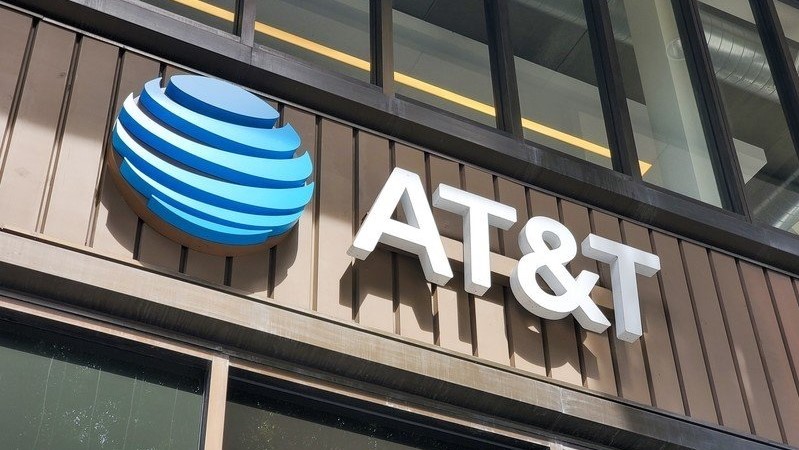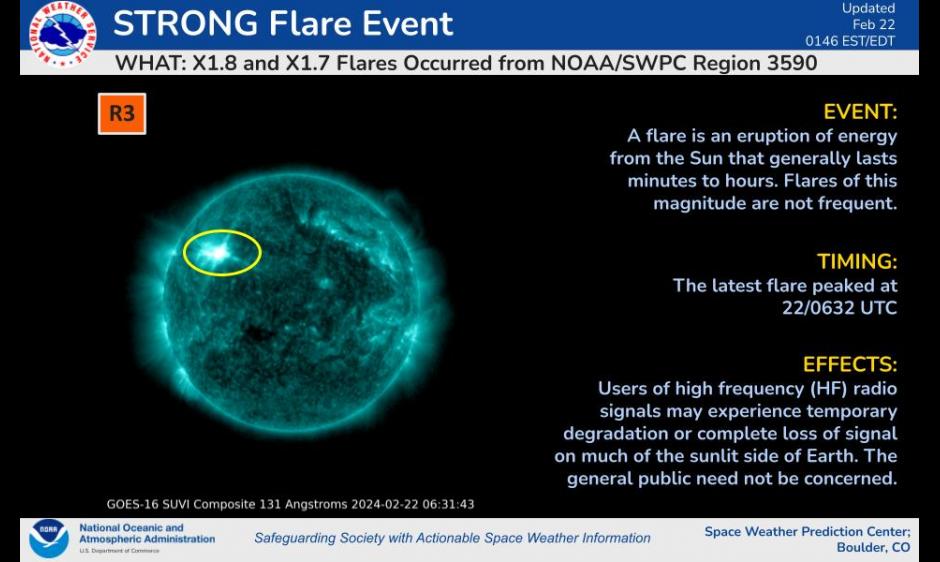AT&T explains cause of a massive outage, says it was 'not a cyber attack'
We now know it wasn't the solar flares.

Update (Feb 23, 2:54 p.m. ET): AT&T explains the cause of the massive outage.
What you need to know
- AT&T subscribers have reported outages on Thursday morning, including those on the company's MVNO carriers.
- Other mobile carriers also reported this issue. However, companies like T-Mobile said they were operating normally.
- Reports of solar flares have some speculating that the two events are connected, although it's not entirely clear if that's the case.
People in the US woke up to no cellular network on AT&T, Cricket Wireless, and other service providers on Thursday morning (Feb. 22), according to the Associated Press.
Companies like T-Mobile stated in their press release that their network was operating normally. However, customers were having issues connecting to other carriers with an outage.
The outages began at around 3:30 a.m. ET and more than 73,000 users reported outages on AT&T at 9:30 a.m. ET this morning.
Several media outlets speculated that these outages were caused by two powerful solar flares that erupted from the sun on Wednesday evening (Feb. 21) and early morning of Thursday (Feb. 22).
According to Space.com, an X1.8 class flare erupted from the sun at 6:07 p.m. ET on February 21, and another, an X1.7 class flare, erupted at 1:32 a.m. ET last night.
X-class flares are classified as the most powerful outbursts from the sun that cause temporary disruptions or loss of connectivity for users with high-frequency radio signals on the 'sunlit' side of the earth, a report from the National Oceanic and Atmospheric Administration (NOAA) stated.
Get the latest news from Android Central, your trusted companion in the world of Android

Solar flares are caused by the sudden release of magnetic energy stored in the Sun's atmosphere. This leads to intense bursts of radiation across different wavelengths.
While there's no evidence that these solar flares caused the nationwide cellular outage, it's important to note that both these events seem to have started around the same time and could be related.
Dr. Ryan French, a solar astrophysicist, also took to X (formerly Twitter) to put these speculations to rest, stating that it was "just a coincidence."
Brett Tingley, managing editor at Space.com, said that such powerful flares have the potential to create long-lasting radiation storms that can "disrupt satellites, wreak havoc on global transmission systems and, if strong enough, cause worldwide blackouts."
The NOAA's website stated that they're closely monitoring the situation while the region continues to "exhibit strong magnetic complexity and is currently classified as a Beta-Gamma-Delta."
Some people are attributing cell network outages (AT&T, Verizon) in the U.S to last night’s X-class #SolarFlare. However, flares only cause radio degradation on the *dayside* of the Earth. As you can see below, the U.S was not affected by the event. So it’s just a coincidence! https://t.co/8EQxLV2qVJ pic.twitter.com/A5kImCmStCFebruary 22, 2024
Reuters reported the Federal Communications Commission is investigating this massive outage while the FBI is trying to determine if this outage was caused by a cyberattack or a hack.
Meanwhile, AT&T stated that it was aware of the situation, and its network teams took immediate action. "So far, three-quarters of our network has been restored. We are working as quickly as possible to restore service to remaining customers."
Earlier this month, another set of X-class solar flares caused shortwave radio blackouts across South America, Africa, and the Southern Atlantic.
"We can expect to see more solar flares and more outbursts of solar weather like this one as the sun approaches what is known as solar maximum, a high point in the 11-year period of solar activity driven by the sun's magnetic field," Tingley added.
CORRECTION: A previous version of this article stated that T-Mobile was impacted by the outage; however, the carrier's network was operating normally. This has now been corrected.
Update
AT&T stated on the evening of February 22 that it had restored three-quarters of its network and continues to work on restoring connectivity for the rest of its customers. They also stated that, based on their initial review, the outage was caused by the "application and execution of an incorrect process used as we were expanding our network, not a cyber attack."

Nandika Ravi is an Editor for Android Central. Based in Toronto, after rocking the news scene as a Multimedia Reporter and Editor at Rogers Sports and Media, she now brings her expertise into the Tech ecosystem. When not breaking tech news, you can catch her sipping coffee at cozy cafes, exploring new trails with her boxer dog, or leveling up in the gaming universe.
